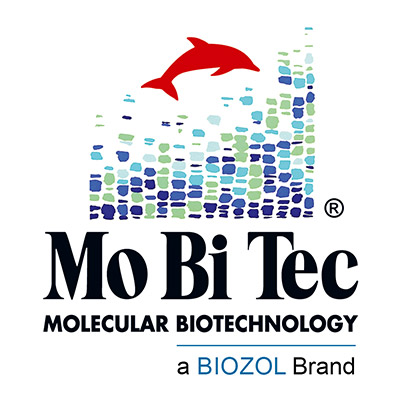Dextra – Specialists in Carbohydrate Chemistry & CDMO Services
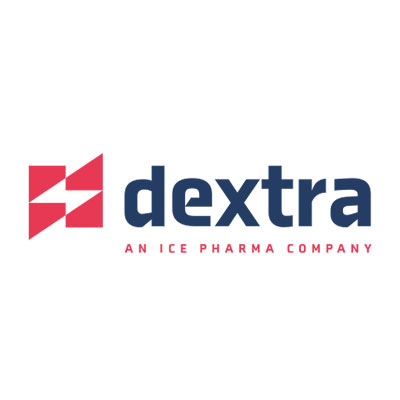
Dextra has gained a world-wide reputation for the supply of rare sugars, oligosaccharides, and chiral molecules for medical research, diagnostics, and pharmaceutical applications.
With over 1000 complex sugars available, Dextra is the most comprehensive source of products for exploiting the complexity and diversity of glycobiology.

Creative Carbohydrate Chemistry
Providing world leading, innovative solutions for the total synthesis of challenging complex carbohydrates, Dextra typically simplify routes and reduce the number of synthetic steps required to achieve the target compound. From a few milligrams to multi kilogram scale their chemists offer unparalleled expertise in oligosaccharide and chiral chemistry taking your project from discovery to clinical trial.
Their catalogue showcases a broad range of carbohydrate products. Products include neoglycoproteins, neoglycolipids, heparin derivatives, iminosugars, blood group products, oligosaccharides, glycans, building blocks and a range of rare sugars for glycobiology and reference standards.
Blood Group Products
Dextra has proven expertise in the manufacture of a wide variety of blood group products, from the standard blood group oligosaccharides, to those functionalized with a selection of linker arms. To complement their free sugar range, they also have the capability to produce these antigens as bioconjugates to a range of solid supports, proteins and lipids.
Dextra’s blood group antigen product ranges are ideally suited for use across a variety of research applications and they hold many of these items in stock for immediate purchase from their catalogue assortment. However, they are also able to fulfil custom requirements across all the blood group product ranges.
There are a variety of applications for the use of their range of blood group products, for example the blood group antigens can be used in applications for ABO incompatible transplantation, plasma purification, antibody and recombinant protein purification and quality control products.
Product Overview:
- Affinity Columns
- Blood Group A
- Blood Group and Lewis Antigen Neoglycolipids
- Blood Group and Lewis Antigen Neoglycoproteins
- Blood Group B
- Blood Group H
- Lewis Antigens
The Blood Typing System & Carbohydrates

The discovery of the ABO blood typing system by Karl Landsteiner over 100 years ago and the subsequent elucidation of their carbohydrate structures by Walter Morgan were exceedingly important milestones in the progression of modern medicine.
The ABO system is the most important of the many blood typing systems and is of the utmost importance in transfusion and transplantation medicine. If patients receive a transfusion of incompatible blood, an acute haemolytic reaction can occur, this can lead to death.
Blood Group Antigens
The blood group antigens are oligosaccharides expressed on the surface of red blood cells and are determined by the terminal saccharides. The biosynthesis is effected via the action of the A or B glycosyltransferase on the H antigen, to form the A or B glycan. The H antigen remains unmodified in individuals lacking either of these glycosyltransferases, resulting in an individual with blood type O. The expression of these antigens is not limited to red blood cells and also occurs on epithelial and other cells.
Blood groups are determined by the ABO gene, which encodes the glycosyltransferase which forms the A, B and H antigens. The alleles for the A and B blood types show co-dominance, whilst the blood group O allele is recessive, giving rise to the familiar four ABO blood types.
Glycoconjugates
Naturally occurring glycoconjugates are known to be ubiquitous in nature and are vitally important in many biological processes including cell-cell recognition and biological messaging.
Dexta supplies an extensive and ever-expanding range of glycoconjugates including neoglycoproteins, neoglycolipids, biotinylated sugars, glycosylated amino acids and carbohydrate affinity gels. Many are widely used by researchers in bioassays and some are included in patent applications.
- Biotinylated
- Neoglycolipids
- Blood Group and Lewis Antigen Neoglycoproteins
- Core Structure Neoglycoproteins
- Gala1-3Gal analogue Neoglycoproteins
- Gala1-3Gal series Neoglycoproteins
- Monosaccharide Neoglycoproteins
- Sialylated Neoglycoproteins
- Umbelliferyls
Natural & Synthetic Glycoconjugates
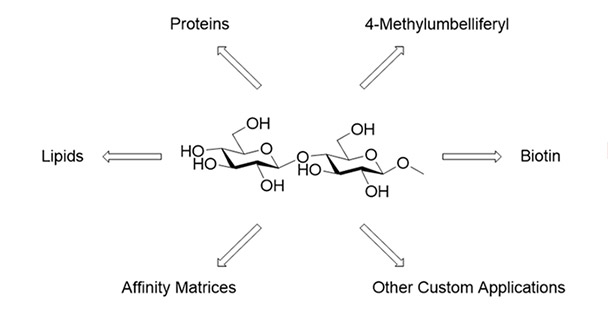
Naturally occurring glycoconjugates are known to be ubiquitous in nature and are vitally important in many biological processes. These substrates can be of very complex structure and the sugar moieties are known to be especially important in cell-cell recognition and biological messaging.
Carbohydrates are used more infrequently in biological assays than say proteins or peptides, but they have enormous potential given their stereochemistry and range of structural variation and specificity to enable precise biological identification and measurement of binding affinity.
Synthetic glycoconjugates are proving to be invaluable as tools for probing these processes, for use in diagnostics, as vaccines, adjuvants and many other applications besides.
Oligosaccharides
Dextra offers a wide range of oligosaccharides, including oligomannoses, human milk oligosaccharides (HMO’s), N-glycans, tumour antigens and glycosaminoglycans.
- Amino Functionalized
- Cell Adhesion Oligosaccharides
- Cello & Xylo-oligosaccharides
- Gala1-3Gal series
- 2-AA Labelled Glycans
- 2-AB Labelled Glycans
- Complex Type N-Glycans
- High Mannose Type N-Glycans
- Xylose Containing Plant N-Glycans
- Chondroitin Sulfate Oligosaccharides
- Glycosaminoglycans from Polysaccharides
- Heparin derived unsaturated oligosaccharides by enzyme cleavage
- Heparinases
- Lactose based O-glycans
- Maltooligosaccharides
- N-Acetylglucosamine core structures
- N-Acetyllactosamine & analogues
- Neutral & Sulphated Galacto-oligosaccharides
- Oligomannose Core Structures
- Sialylated oligosaccharides
- Tumour Antigen Neoglycoproteins
- Tumour Antigens & Oligosaccharide Standards
What are Oligosaccharides?
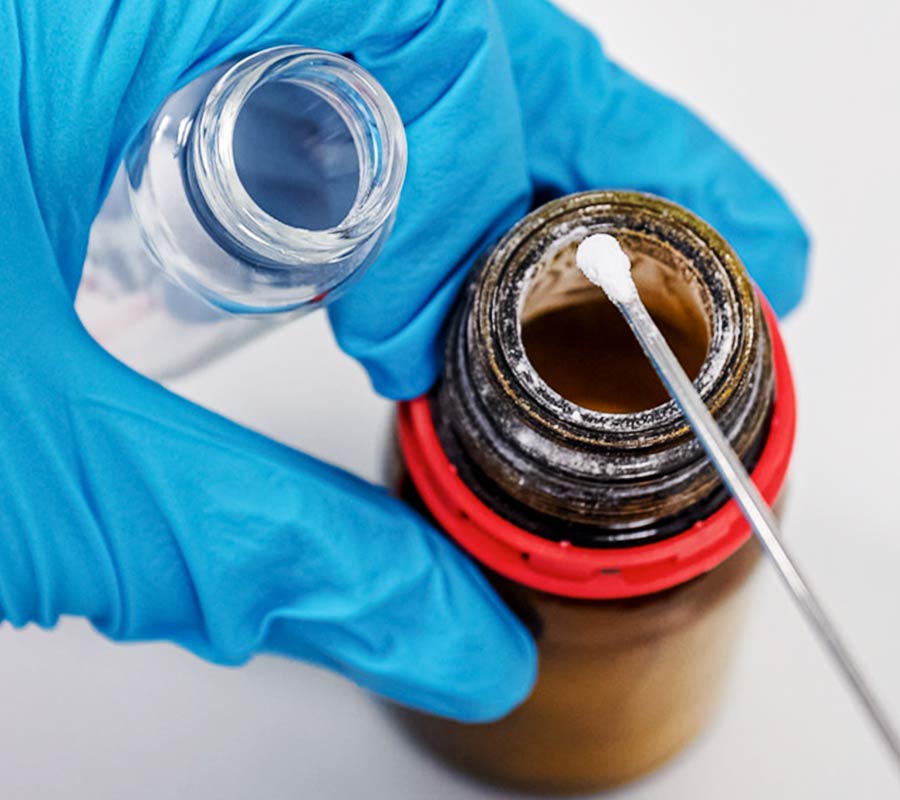
Oligosaccharides are a structurally diverse range of carbohydrates made up of a small number of monosaccharides linked via glycosidic bonds. These molecules are involved in a wide range of natural processes including cell recognition and cell adhesion. These substrates offer a range of pharmaceutical and industrial applications such as vaccines, blood products, probiotics and food additives.
Monosaccharides
Dextra’s range of Monosaccharides includes an extensive collection of phosphorylated sugars, sulfated sugars, halogenated sugars, imino sugars, protected intermediates and unusual lactones available as building blocks and basic research tools.
- Brominated Monosaccharides
- Chiral Lactones
- Glucuronides
- Imino Sugars
- Monosaccharides sulphates
- Neuraminic acids
- Nitrogen containing monosaccharides
- Phosphorylated Sugars
- Sulphur containing monosaccharides
What are Monosaccharides?
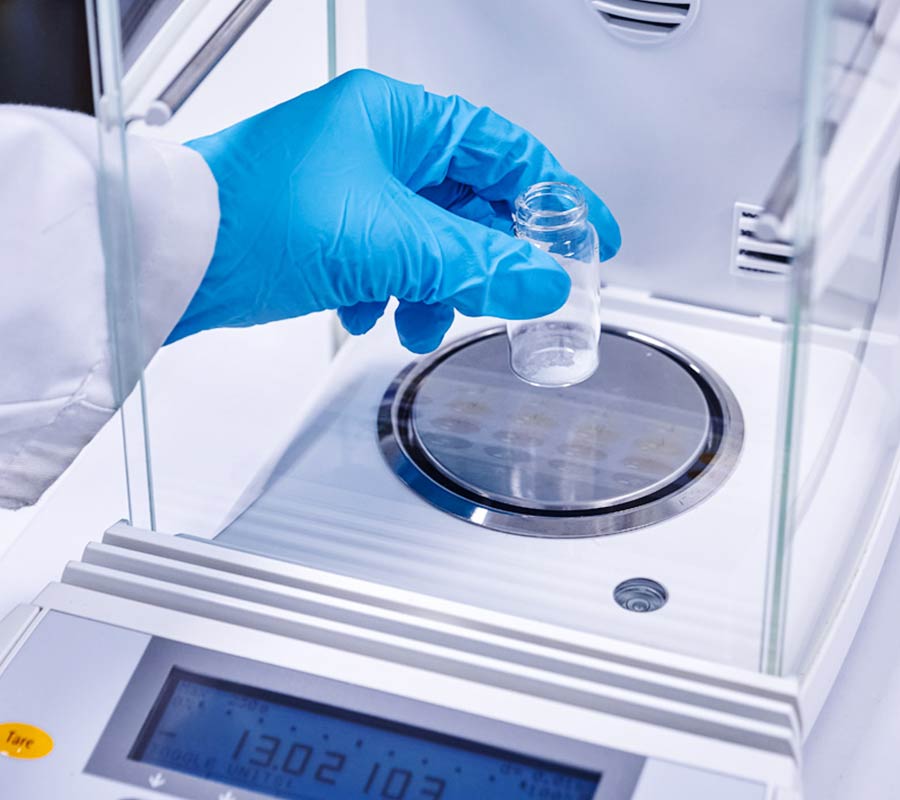
Monosaccharides, often considered to be simple sugars, are the basic building blocks of carbohydrates. These are generally water-soluble, crystalline solids with the general formula CnH2nOn. They can be classified by the number of carbon atoms they contain, the most abundant are pentoses (5 carbons) and hexoses (6 carbons).
Examples of these building blocks commonly found in nature include xylose (plant cell walls), ribose (RNA), glucose (cell energy source), mannose (plant cell walls) and fructose (a constituent of sucrose).
Monosaccharides form more complex saccharides via the formation of glycosidic bonds. For example, D-glucose and D-galactose combine to form the disaccharide lactose, commonly found in milk, while D-glucose and D-fructose combine to form sucrose (table sugar).
Nucleosides & Nucleotides
Naturally occurring nucleosides and nucleotides are ubiquitous in nature and are critical to DNA/RNA replication. Dextra’s range of nucleosides & nucleotides includes a variety of nucleobases coupled to both monosaccharides and phosphorylated disaccharides. These can be used as tools to probe replication pathways and may have activity preventing pathogen replication.
- Halogenated Nucleosides
- Nucleotide Diphosphate Sugars
What are Nucleosides & Nucleotides?
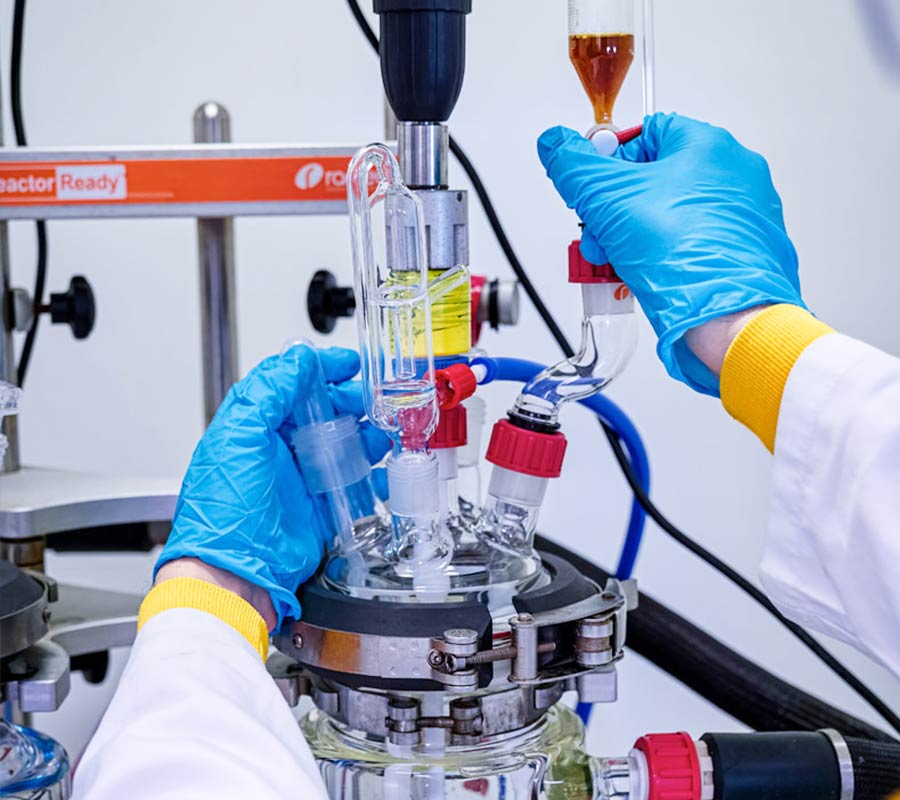
Naturally occurring nucleosides are glycosylamines comprising of a 5-carbon ribose or 2-deoxyribose sugar bound to a nucleobase via a β-glycsidic bond. Nucleosides are the precursors to the nucleotide building blocks of DNA and RNA and can be subdivided into two classes relating to their nucleobase subunit, pyrimidines (cytidine, thymidine and uridine) and purines (guanosine and adenosine).
Nucleotides are comprised of a nucleobase, ribose or deoxyribose sugar and one or more phosphate groups. In addition to their role as fundamental building blocks of DNA and RNA, nucleotides are also key in cell metabolism (as the nucleoside triphosphates ATP, GTP, CTP and UTP) and cell signaling (cGMP and cAMP).
Synthetic Nucleosides & Nucleotides
Synthetic nucleoside and nucleotide analogues have been used successfully in the treatment of a wide range of clinical indications. Examples include azidothymidine (AZT) and abacavir in the treatment of HIV and ribavirin in the treatment of a range of viral diseases. Other indications where nucleoside analogues used in clinic including cancer, varicella zoster and herpes simplex.
Polysaccharides
Polysaccharides are large polymers of repeating monosaccharide or disaccharide units. Dextra offers a wide variety of plant, microbial and animal derived acidic and neutral polysaccharides.
- Acidic Polysaccharides
- Neutral Polysaccharides
What are Polysaccharides?
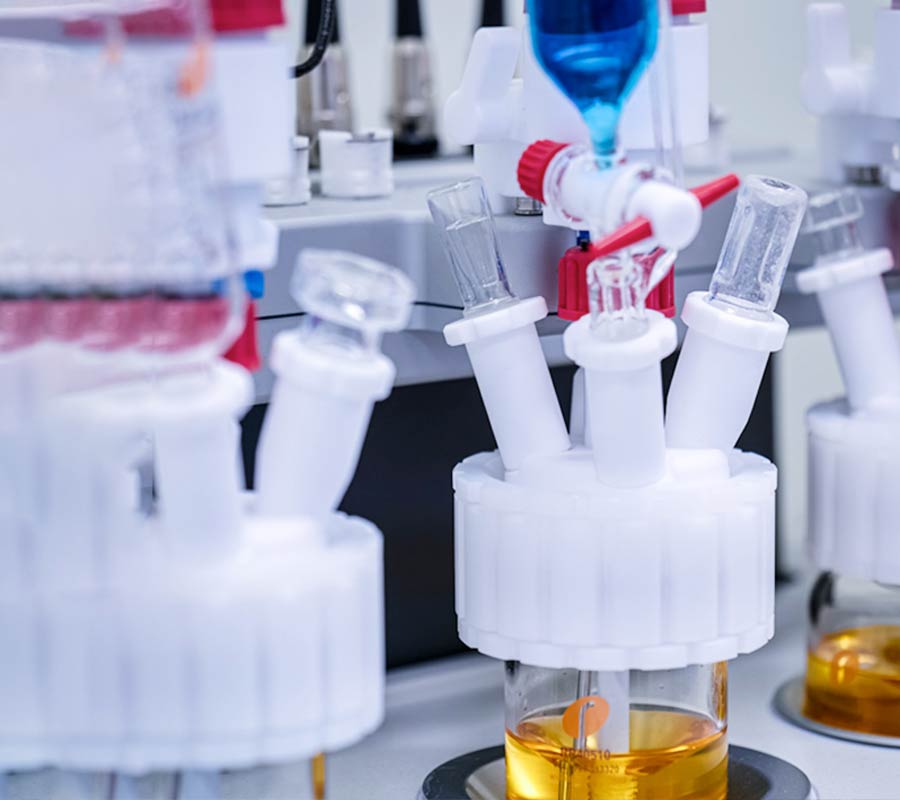
Polysaccharides are long chain carbohydrate molecules comprising of monosaccharides linked via glycosidic bonds, these chains can be linear or branched. Polysaccharides are high molecular weight molecules, primarily consisting of carbon, hydrogen and oxygen. They are generally solids, often insoluble in water and of a non-crystalline nature.
Polysaccharides perform a variety of functions in nature including energy storage molecules such as starch and glycogen whilst others are structural molecules such as chitin found in some exoskeletons and cellulose often a component of plant cell walls, other are found in secretions from microbial organisms.
Humans exploit natural polysaccharides and their derivatives in a wide range of applications. Medical applications such as heparin as an anticoagulant, use in cosmetic products such as hyaluronic acid in skin creams, other polysaccharides are utilized in the food industry including pectin, carrageenan and curdlan.
Please Browse Dextra Laboratories Products:











*All prices in € excl. VAT and shipping
